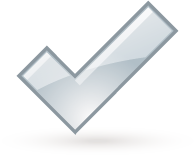
Nailing the Job Interview
The interview is the opportunity to capitalize on all your hard work. At this stage, you've already been screened according to the skills and experience the employer is seeking. They like you and are interested. It’s now all about fit.
There are many things you can do to successfully demonstrate your fit in the interview process. Unfortunately, it can be easy to fall into certain habits that are likely to reduce your chances of success. The pointers below will help you minimize these pitfalls while increasing your self-awareness.

The interview is the opportunity to capitalize on all your hard work. At this stage, you've already been screened according to the skills and experience the employer is seeking. They like you and are interested. It’s now all about fit.
There are many things you can do to successfully demonstrate your fit in the interview process. Unfortunately, it can be easy to fall into certain habits that are likely to reduce your chances of success. The pointers below will help you minimize these pitfalls while increasing your self-awareness.

“ The journey is the reward. ” a word from the Sherpa |
Before the Interview
During the Interview
After the Interview
|
Additional Resources Self Management Website Sherpa Help Privacy Policy Contact Customer Service
©2009 STC Intl. Ltd. and CSP. All Rights Reserved.
©2009 STC Intl. Ltd. and CSP. All Rights Reserved.
